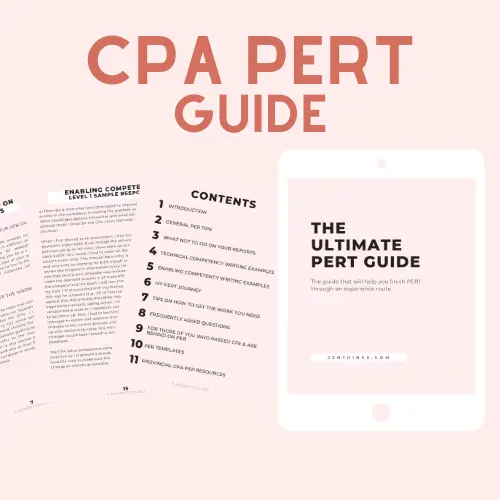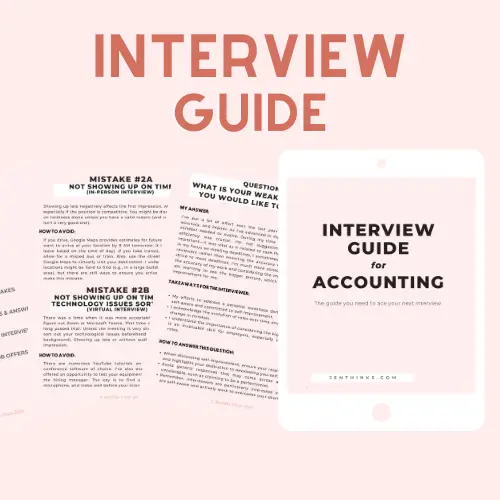I did several updates leading up to most of my PEP exams (except for Core 1 because I was overwhelmed near the end) and thought I should do the same for my last one. I am writing this the night before my Performance Management (PM) exam. Eric asked if I was planning on doing any more studying tonight and I told him no. I would love to go back to reviewing tax technical for CFE but he convinced me to take it easy instead. I thought he had a point so I don’t overtire myself. I also had a rather busy day at work as it was the last business day before quarter end for me (taking the exam day off).
For those of you also taking the exam tomorrow, GOOD LUCK 🍀🤞
RELATED POST – CPA Performance Management – Why Did I Choose the PEP PM Module?
Did I Review Everything As Planned?
When I wrote my last official update, I broke the remaining weeks down into three portions and scheduled my time loosely. I ended up doing everything I wanted to for PM and managed to squeeze in several slack days in between. On the CFE-front, I thought I was going to start reviewing for Financial Reporting technical before Taxation but I changed my mind. I am only half-way done with Tax technicals as well so I will need to revise my study plan after my PM exam.
I did the following in the past 3 weeks (PM-related)
- debriefed the remaining 2 practice cases for the second time (the first time was when I attempted them for marks)
- “attempted” all 3 practice exams available on CPA D2L
- I put “attempted” in quotation because I didn’t write them under exam condition
- instead, I worked on a proper outline before fully attempting the quantitative analyses and verbally attempting the qualitative
- did 2 Densmore skill drills for Management Accounting
- turned out to be relevant for PM as the competencies were also tested on PM
- debriefed all practice cases + integrated problems (some for the 2nd some for the 3rd time)
- this time, I made notes on how to score a ‘C’ response and paid attention to how the responses were structured
- briefly reviewed some chapter reading notes
- I organized chapter readings into shorter sentences + bullet points when I read them the first time so that was what I reviewed
- I spent the least amount of time on reading for PM out of all the other PEP modules I have done
- used YouTube videos as supplementary materials for concepts like TQM, BSC etc.
RELATED POST – Densmore for CPA PEP – Are The PEP Essentials Packages Worth It?
In addition, I did the following that was CFE-related:
- reviewed tax technicals by going through the chapter on Knotia ebook
- used CPA Competency Map to guide my study and made hand-written notes
- tried the Cornell Note-Taking method for the first time (need more practice)
What Are My Final Thoughts For The CPA Performance Management Module?
It Was The Least Time-Consuming CPA PEP Module For Me
The PM module has truly been the “easiest” module out of all the ones I have taken. I took Core 1, Core 2 (common to all) and Finance before PM. I had my expectations before I started the module because many people I know that took PM said it was the easiest and that very little studying was required. Since I did all of the reading before the module even started, the regular pace felt like extended to me (which was intentional). I also managed to start studying for CFE as I intended to all along.
~ More CPA Posts ~
CPA PEP Core 1 – How to Study for the Module and the Exam
CPA PERT – Ultimate Guide on How to Get Your First Experience Report via EVR Approved
CPA PERT – Enabling Competencies Examples
Densmore for CPA PEP – Are The PEP Essentials Packages Worth It?
CPA PEP Module – Regular Module or Extended Module?
The Content Was Very Big-Picture & Practical
I chose this module not because it was said to be the easiest. I chose this module because the content seemed very big-picture-focused and practical. I am glad to report that my assumption has been confirmed. Depending on where you are in your career, you might or might not have been involved with the strategy formulation process. However, many of us would have been part of the annual goal-setting process because it has an impact on our annual bonuses. As the module name suggests, PM focused a lot on the different performance measurement frameworks. Topics such as the balanced scorecard (BSC), key success factors (KSF) and compensation plan are relevant to all of us who work at a company.
RELATED POST – CPA Performance Management – Why Did I Choose the PEP PM Module?
It Felt Like A Walk In The Park After The Finance Module
Since I took Finance first, I was used to the more complex and in-depth quantitative analyses. Unlike the complicated valuations, cash flow forecasts or CCA calculations on the Finance module, the quantitative analyses I encountered in the PM module were quite straightforward. It made sense as the PM module focused heavily on the qualitative responses. I have noticed the level of depth required for a C response seemed higher than what was required for Finance. I enjoyed taking Finance (I am choosing that to be my CFE elective after all) but I found PM to be the perfect last PEP module. Since I can’t take this module at the extended pace unless I postpone writing my CFE to 2022, it was also the better choice for the regular 8-week pace.
RELATED POST – CPA PEP Elective – Why Did I Choose the Finance Module?



Comments are closed.